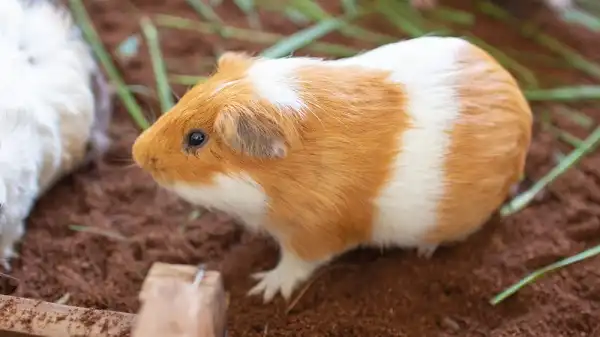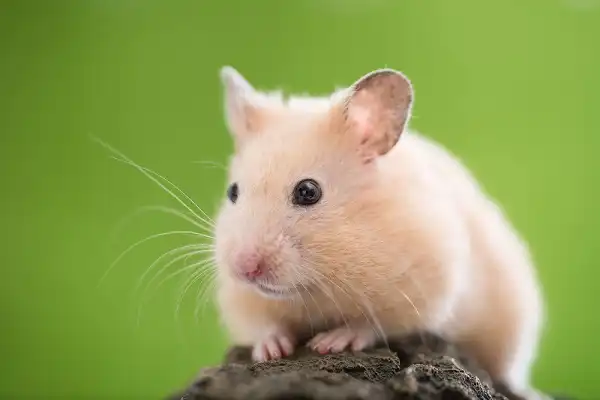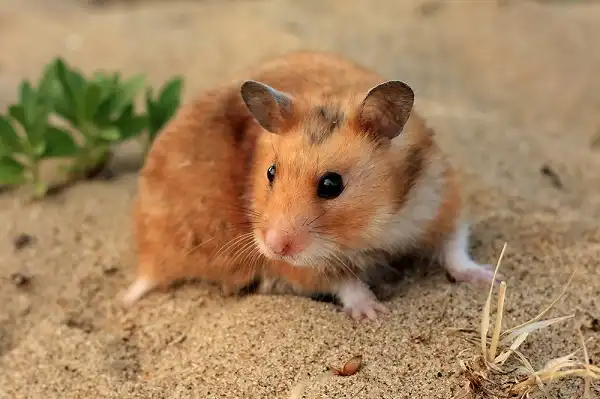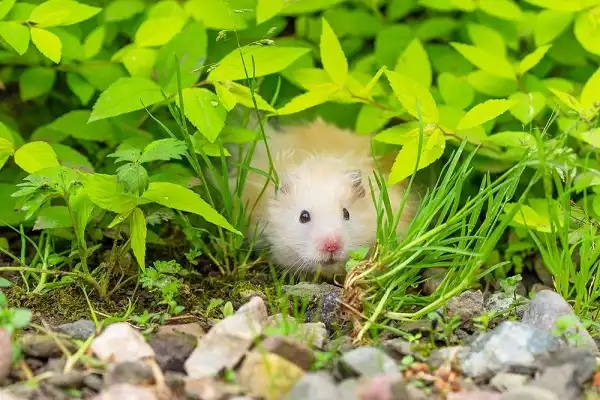The Syrian hamster, also known as the Golden Hamster or Teddy Bear Hamster, is an incredibly popular pet due to their cute demeanor and playful attitude. They are often chosen by novice pet owners due to their ease of care and the fact that they can thrive in smaller living quarters when compared to other small animals such as guinea pigs. Syrian hamsters make great pets with a lot of love and attention to give! If you’re considering adding one or more of these little furballs into your life, then read on for all the information you need about caring for a Syrian hamster.

Syrian Hamster Description
Syrian hamsters are small, round rodents. They have a dense coat of fur that can come in a variety of colors such as grey, brown, black, and white depending on the breed. They have small ears, large eyes, and soft tails. Syrian hamsters are solitary animals and require their own individual living quarters to prevent fighting among themselves or with other animals. Additionally, they tend to become territorial, so it is important that they have plenty of space within their cages to feel safe and secure. In terms of personality, Syrian hamsters are generally active and inquisitive creatures who love to explore their environment. They are naturally playful but enjoy snuggles too! With enough time and patience, it is possible to tame them so that they don’t bite when handled.
Syrian Hamster Habitat
Syrian hamsters thrive best when given an environment that is designed to mimic their natural habitat. A good of thumb for the size of the cage is at least 24”x12”x12” with a minimum of 48 square inches of floor space per hamster. Glass aquariums make great habitats as they retain heat and keep drafts away from your pet. Make sure you line the bottom with bedding, such as paper-based bedding or aspen shavings, which also help absorb odors and urine. Additionally, include a safe tunnel system with small hideaways for them to explore and feel secure in. When it comes to providing enrichment, hammocks are a must-have in your pet hamster’s home! They not only provide hours of fun but also give shelter to your furry friend while they sleep or relax. You can also add toys such as ladders, tubes, exercise balls, swings, platforms, and wheels so they can have fun activities throughout their day.
Syrian Hamster Diet
Syrian hamsters are omnivores and require a balanced diet to stay healthy. A good diet for your pet should include fresh vegetables, fruits, nuts, and pellets designed specifically for hamsters. Fresh vegetables such as carrots, broccoli, and spinach should make up the bulk of their diet. Fruits can be offered as treats once in a while in small amounts. Nuts are a great source of protein and can be given to your hamster in moderation; avoid offering whole nuts since they may be too hard for them to chew. Lastly, fortified pellets and grains provide essential nutrients such as fiber, vitamins, and minerals that are important for their development. To ensure that your pet is getting enough food and water daily, it is important to feed them at the same time each day and provide fresh food every day. Additionally, it is important to monitor their portion size carefully; overfeeding can lead to obesity which can have serious health complications down the line. Clean out their cage regularly to prevent any buildup of uneaten food or waste products which can lead to disease.

Syrian Hamster Size
Syrian hamsters are typically small rodents, with adults growing to a maximum of 8 inches in length, including their tails. On average, they reach a size of 7-8 inches. They have thick fur and an overall round shape when seen from the side. Their ears are large and noticeable compared to their body size which helps them detect any possible predators or dangers. Male Syrian hamsters tend to be larger than females, reaching up to 8 inches in length when fully grown while females reach 6-7 inches in length. Males also have thicker fur than females and generally weigh more too; males typically weigh between 2-4 ounces while females usually range from 1-2 ounces.
Syrian Hamster Lifespan
Syrian hamsters are relatively long-lived for small rodents, with a lifespan of 2-3 years on average. With proper care and nutrition, they can even live up to 4 years or more! It is important to keep them in an environment that meets their needs, such as one that is free from drafts, has adequate space, and offers plenty of enrichment. It is important to note that some types of Syrian hamsters tend to have shorter lifespans than others. For example, black bear hamsters have a shorter lifespan of 1-2 years while white teddy bear hamsters have been known to live up to 3-4 years or longer. Overall, owners should ensure that their pet receives good care and nutrition throughout their lifetime in order to maximize their lifespan. With proper care and attention, Syrian hamsters can make wonderful companions for many years!
Syrian Hamster Behavior
Syrian hamsters are active and inquisitive animals that are known for their playful behavior. They are nocturnal, which means they spend most of their days sleeping and become active during the night when it is dark outside. They have a strong curiosity and like to explore, so providing them with plenty of enrichment such as toys, tunnels, and chew sticks is essential for promoting health and mental stimulation. Syrian hamsters can be shy around humans or unfamiliar situations at first, but when handled regularly from a young age they will become tame and friendly. Interacting with your pet regularly helps build trust between you and your hamster making them more likely to come out of their cage willingly. Additionally, regular handling will help desensitize them to touch so that they don’t develop any fear of being picked up in the future. In terms of socialization among other hamsters, Syrian hamsters tend to be solitary animals who do not usually get along well with others of their kind; they should therefore be kept in separate cages whenever possible. If kept in the same cage, however, they should be monitored carefully since fights can occur if left unchecked.

Syrian Hamster Speed
Syrian hamsters are surprisingly fast and agile creatures. They can reach speeds of up to 8 miles per hour, making them one of the fastest small mammals. Female hamsters tend to be slightly faster than males, but both genders are able to move quickly when they sense danger or the presence of food. Syrian hamsters also have an impressive jumping ability, being able to jump up to 7 inches high while running at their top speed! In addition to its agility and speed, the Syrian hamster is also known for its excellent burrowing abilities. It has long claws that help it dig through dirt and other materials easily. This makes them perfect for creating networks of tunnels underground where they can make their homes and hide from potential predators. In the wild, Syrian hamsters often live in large colonies which further demonstrates their aptitude for digging tunnels.
Syrian Hamster Hunting
Syrian hamsters have highly developed hunting skills that make them effective predators. They have keen ears and eyesight, allowing them to easily detect potential prey items in their environment. Additionally, they have powerful claws that can help them grasp their food and dig into the ground quickly when necessary. In the wild, Syrian hamsters are known to hunt insects, small rodents, and other small animals. They also feed on fruits, vegetables, nuts, and seeds as part of a balanced diet. In captivity, they can be fed with commercially available hamster food though they should still be given treats such as mealworms or crickets from time to time in order to satisfy their natural hunting instincts. Due to its small size, the Syrian hamster relies heavily on its speed and agility when hunting for prey. It is capable of making fast turns and jumps in order to catch its target quickly before it has a chance to escape. Additionally, its long front teeth enable it to gnaw through tougher materials such as bark when searching for food buried beneath the surface.

Conclusion
The Syrian hamster is an active, friendly, and playful creature that makes a great companion for those looking for an entertaining pet. It has impressive speed and agility combined with burrowing abilities which make it both exciting to watch and fun to interact with. Additionally, its natural hunting instincts can be satisfied by providing it with suitable treats from time to time. With adequate care and attention, owners can enjoy many years of companionship from these small yet lively creatures! Overall, the Syrian hamster is an appealing pet for people of all ages due to their easy-going nature, high energy level, and need for socialization.
Frequently Asked Question


